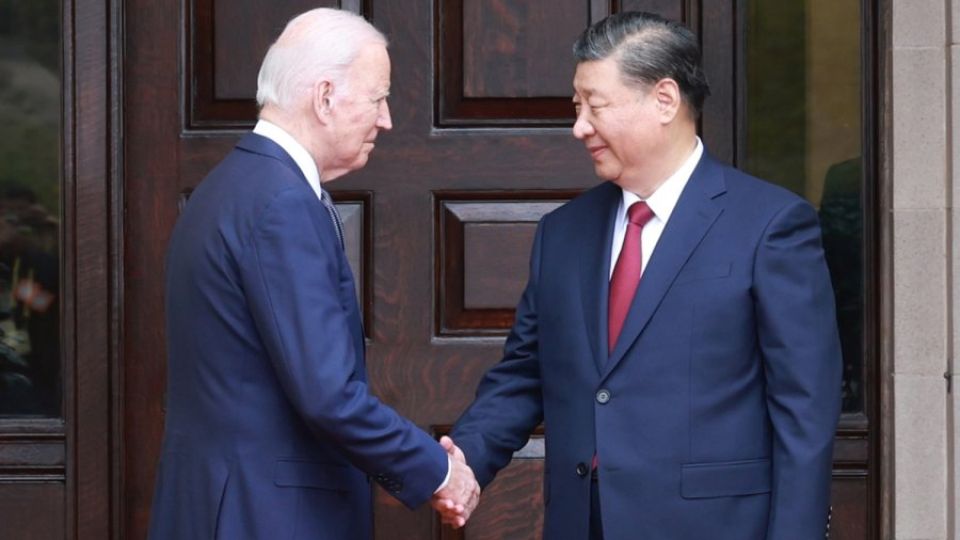November 22, 2023
HONG KONG – Probably the most influential self-improvement American writer from the first half of the 20th century was Dale Carnegie. He rose from modest beginnings and worked throughout his life on writing and lecturing about self-development. His most famous book was How to Win Friends and Influence People. By the time of his death in 1955, it had sold over 5 million copies in 31 languages.
Much of what he wrote helped develop better salesmanship — but it went much further than that. A number of his classic 10 principles are, as one writer said, “the building blocks of social intelligence”. They have also stood the test of time. During an interview in 2019, Warren Buffett said the $100 Dale Carnegie course he took “gave me the most important degree I have. It certainly had the biggest impact in terms of my subsequent success.”
But what has Carnegie got to do with the recent APEC meeting in San Francisco?
Although this book is available in a Chinese-language edition, it is probable that President Xi Jinping will not have had time to read it during his exceptionally busy life. Yet, it seems that President Xi already understands, from his own experience, certain key principles that Carnegie also stressed. And he acts on them.
It is more likely that US President Joe Biden may have read this remarkable book — but if he has, there is scant evidence that he shares, today, the same sort of understanding as President Xi, about the building blocks of cross-cultural social intelligence.
One important speech given by President Xi during the APEC forum was delivered at the welcome dinner by friendly organizations in the US on Nov 15 in San Francisco. It was titled “Galvanizing Our Peoples into a Strong Force for the Cause of China-US Friendship”.
One of Carnegie’s key principles is: Begin on common ground. This is precisely what President Xi did as he first reflected on a range of Sino-American connections pivoting on San Francisco, then California and finally the US generally. Next came references to certain important historical associations, not least, the combined US-China effort to defeat Japan in World War II and the contribution of the heroic US airmen dubbed the Flying Tigers. And this was rounded off by warm remarks about his personal encounters with Americans. These observations collectively ticked the box on another key Carnegie principle: Be generous with praise.
Carnegie’s first principle is: Do not criticize, condemn or complain. President Xi was clear that the world manifestly faces a range of grave global and regional geopolitical problems but his delivery was continuously focused on cooperative, peaceful mutual problem solving. Although the problems arising from indulging in hegemonic impulses were indirectly noted, the speech astutely steered well clear of specifically criticizing and condemning others.
The China-based commentator, Jerry Grey, recently emphasized how Xi has long avoided saying “a bad word” about other leaders. Meanwhile, President Biden, as Grey noted, is on record as having, in the past, made slanderous remarks about President Xi. Extraordinarily, not long after smiling APEC handshakes between the two presidents, Biden again, in response to a question at the end of a visibly untidy and alarming APEC press conference, made slanderous remarks about Xi. From start to finish, this acutely compromised presentation by Biden failed to credibly tick any of the key Carnegie boxes.
President Xi received a standing ovation at the welcome dinner where he spoke. This, unsurprisingly, was enough to bring on conniptions within the leading US China-thumping media outlets. The Fox Business Network swiftly went on the attack labeling this welcoming response “disgusting”. Mike Gallagher, chair of the House Select Committee on China in Washington, expressed hostility toward all the companies attending the dinner (including Apple, Blackstone, Pfizer, FedEx and Boeing) and requested, McCarthy-like, a full list of all who purchased tickets from the organizers.
In fact, the shriller Fox et al become at a time like this, the surer you can be that they think China is kicking soft power goals, again. And in the US! It is unthinkably awful — how was this allowed to happen?
Gary Hufbauer, a nonresident senior fellow at the Peterson Institute for International Economics, a Washington-based think tank, indirectly explained, in a recent APEC-related interview, why the China hawks in the US are having yet another anxiety attack. He stated that most countries in the Asia-Pacific region want to expand trade with both China and the US, adding that “China is already the leading economic player in the region, and its footprint will expand in the decades ahead.”
Allow me to finish by drawing on the views of two international commentators.
John Whitbeck, a Europe-based observer, summed up what he had seen at APEC in this way: “In a world which appears to be going mad, it is comforting to know that one of our world’s two great powers is in safe and wise hands and is capable of providing competent, coherent and consistent governance to its own people; and is capable of playing a predominantly constructive role in the world.”
A Canadian-Australian commentator, Harry Glasbeek, meanwhile first noted how carefully crafted President Xi’s speech was prior to saying that it was inconceivable, today, that any US leader could deliver such a speech: “For one thing, it lacked any tinge of triumphalism, boosterism or contempt for others — all prime requirements for US imperial speeches.”


